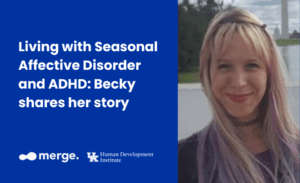“Are you overwhelmed and exhausted by the challenging behaviors in your classroom? It’s time to feel prepared and ready to respond! Learning how to ‘Connect the Dots’ will not only reduce challenging behaviors but promote the social and emotional wellness of the children in your care.” – Brooke Gill
Join us in person or online for our Spring Seminar series on Friday, September 30, 2016 from 1:00 – 3:00p ET to learn more about “Connect the Dots: Addressing Challenging Behaviors while Promoting Social and Emotional Development.” Learn more from Brooke Gill, MPA, CDA, the Social and Emotional Consultant for the Department for Public Health, Division of Maternal and Child Health, and Caroline Gooden, MS, Associate Director of Early Childhood for the Human Development Institute at the University of KY, at the Human Development Institute Training Room on the UK Coldstream Research Campus. A link to the live video stream of the seminar will be sent to registrants.
Click here to register for the seminar. For help registering, contact walt.bower@uky.edu.
Presenters:
Brooke Gill, MPA, CDA, is the Social and Emotional Consultant for the Department for Public Health, Division of Maternal and Child Health. Her education and career background include experience in home visitation, early education, residential treatment and hospital settings.
Caroline Gooden, MS, is Associate Director of Early Childhood for the Human Development Institute at the University of KY. She is Co-Lead for Part C Exiting Data for the IDEA Data Quality Center, and is Co-PI for KY Early Childhood Data System projects. She is a certified KY early childhood trainer.
This training highlights steps to address challenging behaviors often experienced with children ages 2 to 5 years. Presenters will discuss ways to ensure supportive environments, encourage positive behaviors, emphasize positive discipline and embrace unique strengths. During this seminar, caregivers will connect with the emotions and needs behind common challenging behaviors. With this understanding, caregivers will learn more about the influence of daily adult-child interactions and how these interactions can promote more positive behaviors in the classroom, instead of more challenging ones. Participants will learn concrete strategies that are easy to remember and to implement.
Learning Objectives:
- Recognize the importance and applicability of 4 core social and emotional components in reducing challenging behaviors.
- Identify 3 ways adults unintentionally trigger challenging behaviors during daily routines.
CEU’s are approved in Early Care & Education and Effective Instructional Leadership.


